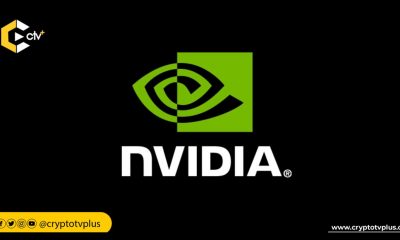News
Nvidia reveals new AI chips: Blackwell Platform

Nvidia has announced its latest generation of AI chips and accompanying software at its developer’s conference in San Jose. The new chips, named Blackwell, promise significant improvements in performance and efficiency over their predecessors.
The Blackwell platform can run trillion-parameter large language models more efficiently and affordably than before. This opens up new opportunities in data processing, engineering simulation, and electronic design automation. Big cloud companies like Amazon, Google, Microsoft, and Oracle are likely to use Blackwell-powered systems, strengthening Nvidia’s leadership in AI infrastructure.
Nvidia Corporation, an American multinational technology company, is a leading manufacturer of graphics processing units (GPUs) and a key player in various industries. Founded in 1993, Nvidia designs and supplies GPUs, application programming interfaces (APIs), and system-on-a-chip units.
The company is renowned for its professional GPUs in supercomputers, workstations, and various industries like engineering, media, entertainment, and automotive. Nvidia’s GeForce line targets consumers for video editing, 3D rendering, and gaming applications.
In addition to GPUs, Nvidia offers the CUDA software platform for parallel programming and AI hardware and software. The company has expanded into mobile computing with Tegra processors and autonomous vehicles with the Drive series.
Also, Nvidia added that it’s going beyond AI chips to make AI deployment easier than before with the introduction of its revenue-generating software called NIM (Nvidia Inference Microservice). NIM gives the tech company an edge to compete with other global giants interested in developing the next phase of AI-based solutions.
CEO Jensen Huang stressed the demand for bigger GPUs, citing investments from companies like Microsoft and Meta in Nvidia’s high-end server GPUs for AI models. Nvidia executives emphasize that the Blackwell platform goes beyond just a chip; it’s a complete solution to make AI more accessible and efficient across various uses.
Nvidia has established itself as a dominant force in the AI market, particularly due to its specialized graphics processing units (GPUs) that have become integral for AI applications. The company’s GPUs, initially designed for gaming, have proven highly efficient for training AI models due to their parallel processing capabilities.
Moreover, Nvidia’s competitive edge in the AI market extends beyond hardware. Despite facing emerging competition from companies like AMD, Intel, Google, Amazon, and startups like Graphcore, the firm seems to be ready to tackle the challenge.
Read also; Nvidia faces French regulator raid over anti-competitive concerns





















1 Comment